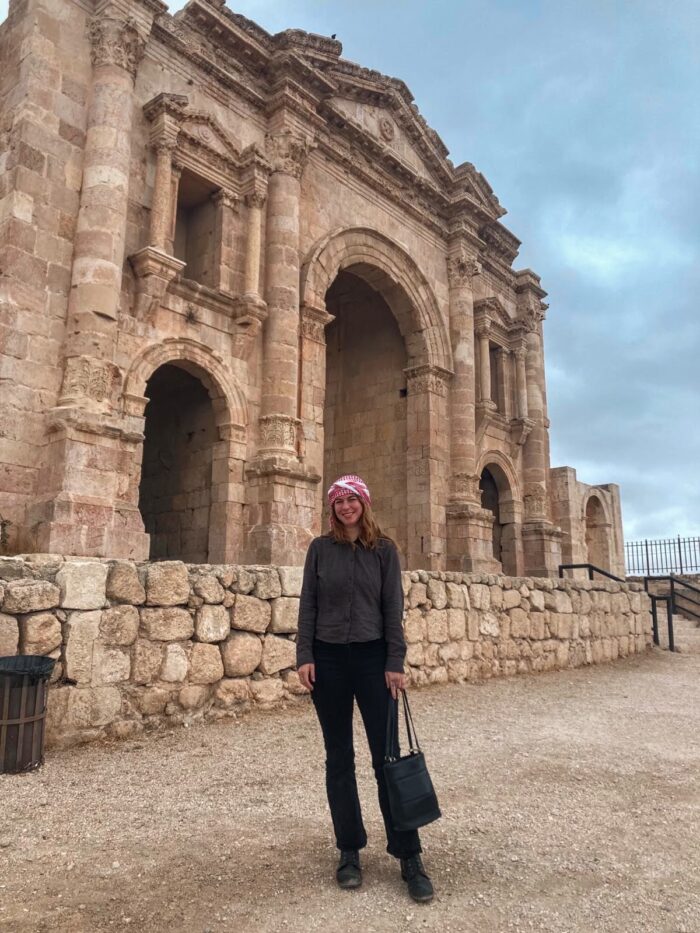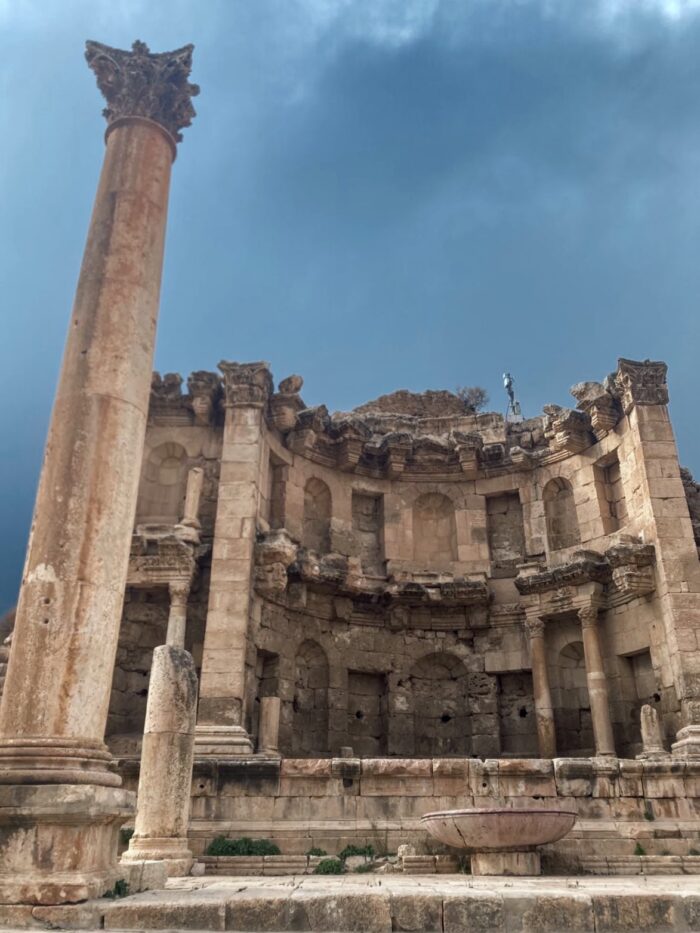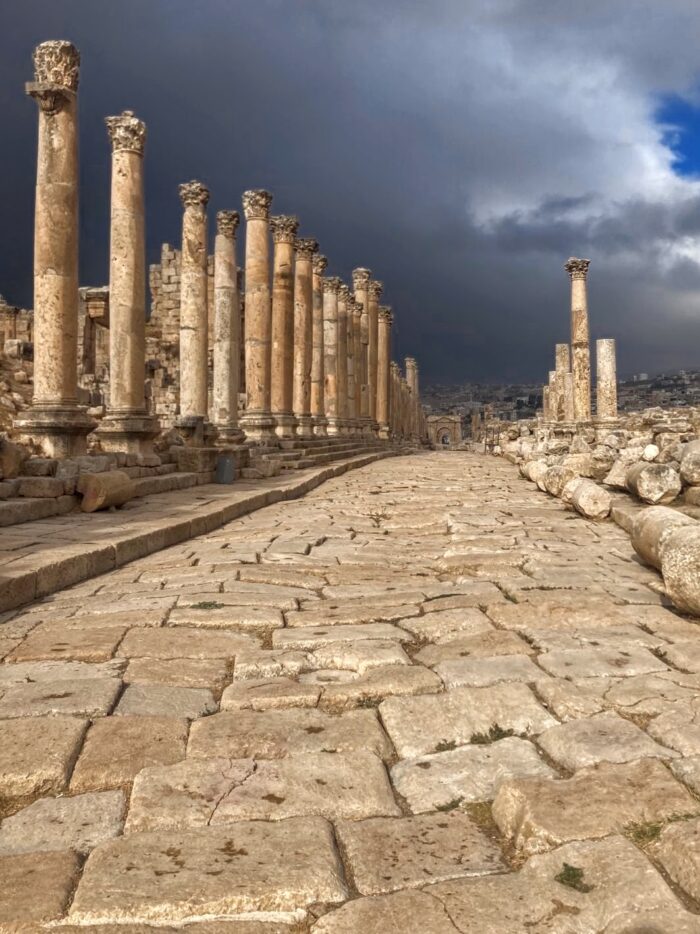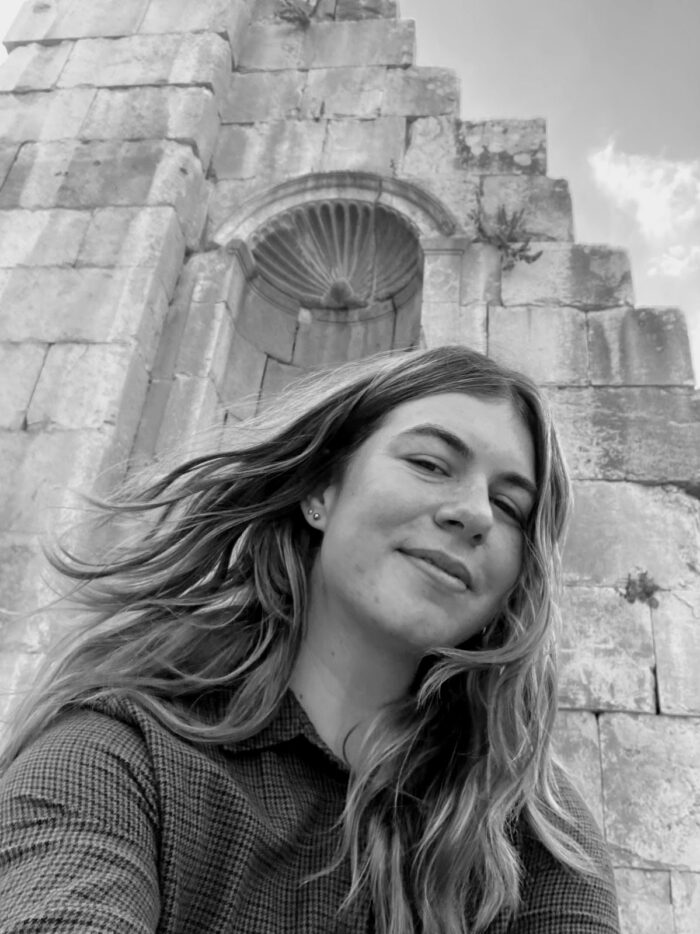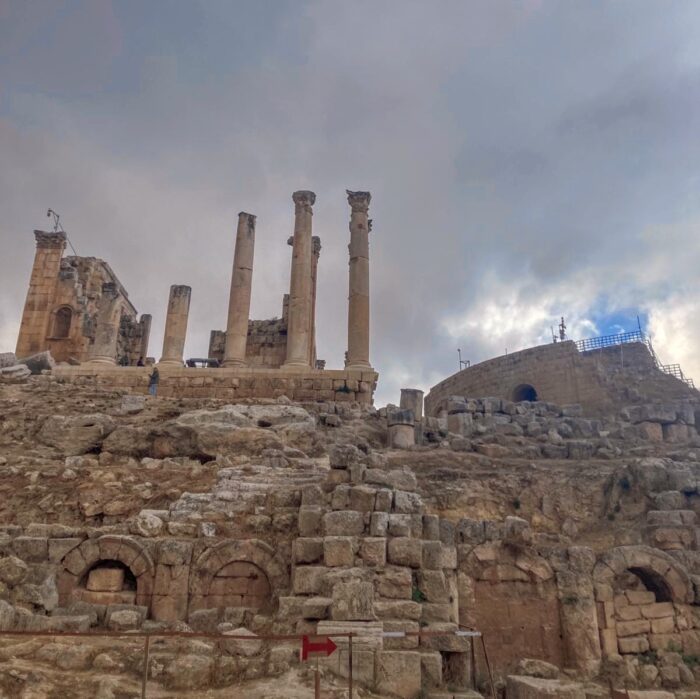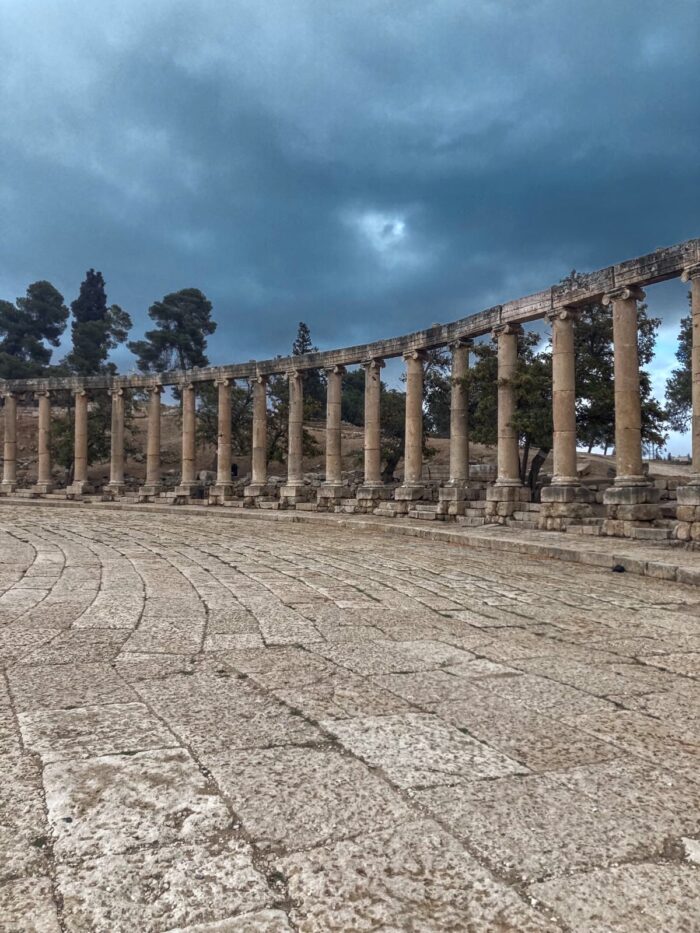Yesterday I took a very cheap bus to the Roman Ruins of Jerash, about an hour away from where I’m staying in Amman. It was an overcast day and although there were hardly any tourists, there were many local boys and men who tried to sell guided walks or keffiyehs by the entrance. I wanted to wander alone and did not want to spend extra money but I started up conversations with a few of them. One insisted that I pose with a scarf on my head. They were all Palestinian refugees and were excited to hear that I had been to the West Bank. None of them had ever been able to go themselves.
Donate to sustain the work, here!
Over two million registered Palestinian refugees live in Jordan, 370,000 of whom live in camps. There are 10 official ones and three unofficial. While three quarters hold full Jordanian citizenship, 634,182 Palestinians displaced from the Gaza Strip after the Naksa do not and are thus excluded from rights and services enjoyed by citizens. They also are not allowed to cross the Israeli-controlled checkpoints to go into Palestinian territory, unlike the Palestinians who have full Jordanian citizenship who can enter the West Bank.
This is because after the Nakba, Egypt took control of the Gaza Strip and Jordan’s army invaded the West Bank. Then, when the West Bank was seized by Israel during the Naksa, Palestinians from the West Bank who fled to Jordan were issued citizenship, but those who came from Gaza were not; since Egypt had previously occupied the strip, they were considered foreign residents.
The right-wing Israeli Likud Party, which Netanyahu has led for almost 25 years, plans to rule all of the West Bank and declare Jordan the official Palestinian state. The elimination of their country is an existential concern for Jordanians. Although the vast majority of Jordanians have sympathy for Palestinians, they want to keep their national identity. Palestinians also do not want to leave their ancestral lands, and their right to national self-determination is inalienable and should obviously be supported.
Human Rights Watch documents the injustices that Palestinians living in Jordan who lack citizenship face: children lose access to free primary and secondary education, university is vastly more expensive, higher healthcare costs, and renewal of drivers’ licenses and passports have higher fees and shorter validity. They also cannot be employed by the state, have greater difficulty on the private job market since many employers require proof of nationality, and cannot practice some professions such as law.
International law gives every person the right to a nationality. In fact, Article 15 of the Universal Declaration of Human Rights clearly states, “everybody has the right to a nationality.” It is shocking if not unsurprising that Jordan refuses to fully integrate Palestinian refugees. I pray that soon all Palestinians will be able to freely go back to or visit their country or have the full rights they are entitled to, wherever they live in diaspora.
